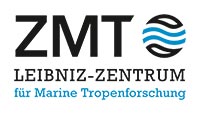Handing over the baton in ZMT's scientific management

Hildegard Westphal will continue at ZMT as head of her research group “Geoecology and Carbonate Sedimentology” and continue to do research and teach in her position as Professor of Geology of the Tropics in the Department of Geosciences (FB05) as part of a cooperation professorship with the University of Bremen.
A selection committee headed by AWI Director Professor Antje Boetius is currently preparing the appointment of a successor to Hildegard Westphal under the difficult pandemic conditions. Until then, Dr. Werner Ekau will be the Acting Scientific Director.
“It has been a wonderful privilege to lead ZMT over the past 10 years, to shape its growth and to establish new areas such as the Office for Knowledge Exchange, the ZMT Academy and Data Sciences,” sums up Hildegard Westphal.
“Likewise, it is now a great privilege to focus on my research again, which I am very much looking forward to. After the evaluation of ZMT, which has just been completed and been unusual due to the pandemic, it is now a very good time to hand my position over into new hands”.
Hildegard Westphal, a geologist by training, took up the post of ZMT scientific director in 2010. One year later she was elected Scientific Vice President of the Leibniz Association and held this office until 2017.
The members of the Supervisory Board and the International Scientific Advisory Board of ZMT thank Hildegard Westphal for her outstanding achievements and acknowledge her valuable contribution to the development of the institute, which was founded in 1991 and became a member of the Leibniz Association in 2009. Since then, ZMT has been an independent research institution.
“Under the leadership of Professor Westphal, ZMT has developed into an internationally renowned institute of the Leibniz Association with worldwide collaborations and scientific successes, which directly contributes to the high reputation of Bremen as a scientific location,” says Dr. Heide Ahrens, Chairman of the Supervisory Board of ZMT. “Particularly noteworthy in this context are the efforts to permanently anchor ideas of sustainable action in the partner countries.”
Prof. Dr. Christian Dullo, Chairman of ZMT’s International Scientific Advisory Board (2011 to 2019) adds: “ZMT has developed very positively in the decade of Professor Westphal's leadership and, in addition to the pure growth in science and personnel, has further diversified and, in particular, established excellent networks with the marine tropical partner countries.”
At ZMT, Hildegard Westphal focussed on the expansion of research and personnel – the number of employees at the institute has tripled since she took office. The successful evaluation of the institute by the Leibniz Association Senate in 2014 ensured ZMT's continued funding by the federal and state governments.
By expanding the Social Sciences and the Geosciences, Hildegard Westphal gave ZMT research a more interdisciplinary orientation. Under her leadership, the institute strengthened its cooperation with Africa, for example with Tanzania within the framework of the Leibniz Graduate School SUTAS (Sustainable Use of Tropical Aquatic Systems).
During her term of office, she consistently promoted capacity development as one of the three pillars of ZMT’s mission and also focused on the training of young scientists by establishing the ZMT Academy two years ago. Since 2010, well over 100 doctoral students have written their theses at ZMT.
Over the past ten years, Hildegard Westphal has not only strengthened scientific diving at the institute with a now certified training centre, but also introduced a professional transfer unit in the form of the Office for Knowledge Exchange (OKE).
More recently, Hildegard Westphal steered the expansion of the data sciences and digital research data infrastructure as part of ZMT’s digitization initiative DigiZ in order to evaluate the typically heterogeneous research data from tropical coastal regions using modern data science methods.
Media Contact
More Information:
http://www.leibniz-zmt.deAll latest news from the category: Earth Sciences
Earth Sciences (also referred to as Geosciences), which deals with basic issues surrounding our planet, plays a vital role in the area of energy and raw materials supply.
Earth Sciences comprises subjects such as geology, geography, geological informatics, paleontology, mineralogy, petrography, crystallography, geophysics, geodesy, glaciology, cartography, photogrammetry, meteorology and seismology, early-warning systems, earthquake research and polar research.
Newest articles

Pinpointing hydrogen isotopes in titanium hydride nanofilms
Although it is the smallest and lightest atom, hydrogen can have a big impact by infiltrating other materials and affecting their properties, such as superconductivity and metal-insulator-transitions. Now, researchers from…

A new way of entangling light and sound
For a wide variety of emerging quantum technologies, such as secure quantum communications and quantum computing, quantum entanglement is a prerequisite. Scientists at the Max-Planck-Institute for the Science of Light…

Telescope for NASA’s Roman Mission complete, delivered to Goddard
NASA’s Nancy Grace Roman Space Telescope is one giant step closer to unlocking the mysteries of the universe. The mission has now received its final major delivery: the Optical Telescope…



